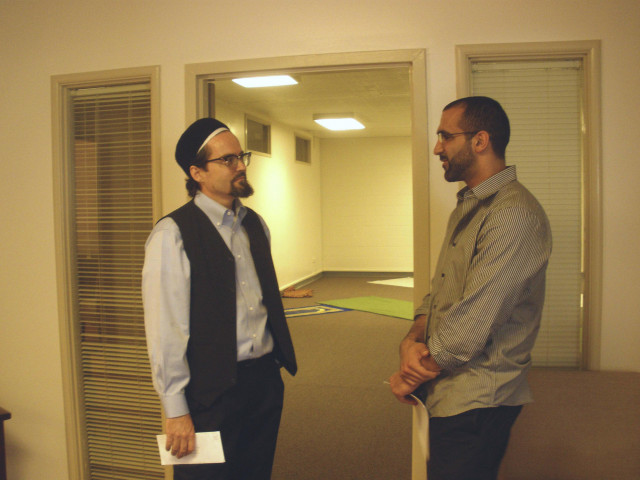Muslim university takes root in Berkeley, California
Zaytuna College aims to counter distrust of Islam by promoting a moderate, firmly American version of the religion.

Muslim university takes root in Berkeley, California
Although the first class has just 15 students and occupies a rented office space blocks from the University of California campus, Zaytuna College aims to become the first accredited US Muslim university, an equal to academic giants with religious roots like Columbia University and Rutgers.
"Every religious community that comes to the US eventually reaches a level when they need to institutionalise to ensure their survival and our community is at that point," said Hamza Yusuf, a co-founder of Zaytuna College and a leading scholar of classical Islam in the West.
Debates are still raging over the appropriateness of a mosque near the New York site of the Sept 11, 2001 attacks, in what some analysts see as a clear sign of US scepticism of Islam. More than 30 per cent of Americans believe Islam promotes violence, and many argue the religion has no place in a Judeo-Christian country, a new Pew Research Center poll shows.
Zaytuna founders say the discrimination Muslims face in the United States is no different from what Catholics experienced in the 19th century or Jews in the 20th century, and it's only a matter of time before they are fully accepted.
"Education in general is one of the primary remedies for dealing with ignorance," said Hatem Bazian, academic affairs chair at Zaytuna College, who also teaches at the University of California at Berkeley. The four-year programme offers classes in Islamic literature, jurisprudence, theology and history and is open to all faiths, although all current students are Muslim, from a variety of backgrounds.
Aiming for the top
There are other US-based Muslim institutions of higher learning, but Zaytuna aims to be the first to get the accreditation that puts schools in the top tier of universities. On a recent day, five students were busy translating the Muwatta, a collection of writings on the Islamic jurisprudence from the Sunni school of thought.
Men and women shared the classroom, but the women stuck close together and all wore hijab, the traditional head covering. Sumaya Mehai, 21, came to the school after several years of frustrated study at a junior college. "I couldn't tie in my religious beliefs with what I was getting in the classroom," Mehai said. "Bringing religion into any discussion is usually discouraged at other schools."
There are an estimated six million Muslims in the United States, according to Pew, a growing community that today has more than 2,000 mosques and 500 schools around the country. Meanwhile, there is a shortage of imams and other community leaders, who often have to be sent from abroad. "The imams who are sent to the US are not prepared to address the issues they encounter here like drug use among teens or pregnancy or gangs," Bazian said. "It's like bringing them into a warzone."
Some graduates will become imams, while others will go on to work at Islamic cultural centers, schools, and mainstream hospitals and law firms, said Bazian, an American convert to Islam. He has been critical of both American and Islamic nations' foreign policy and has described Islamic countries as oppressive, earning criticism in the Arab world. Although some conservative bloggers have criticised the school as a "training ground for jihadists," the local Berkeley community, known for its leftist leanings, has been welcoming, Yusuf said.
Nationally too, Islamic scholars have praised the school for its progressive and moderate approach. "It's an attempt to bring the rigor of classical Islam and make sure it takes root in American soil," said Omid Safi, a professor of religious studies at the University of Carolina, Chapel Hill. "If successful, it will be yet another step to making Islam indigenous in this country."



















COMMENTS
Comments are moderated and generally will be posted if they are on-topic and not abusive.
For more information, please see our Comments FAQ